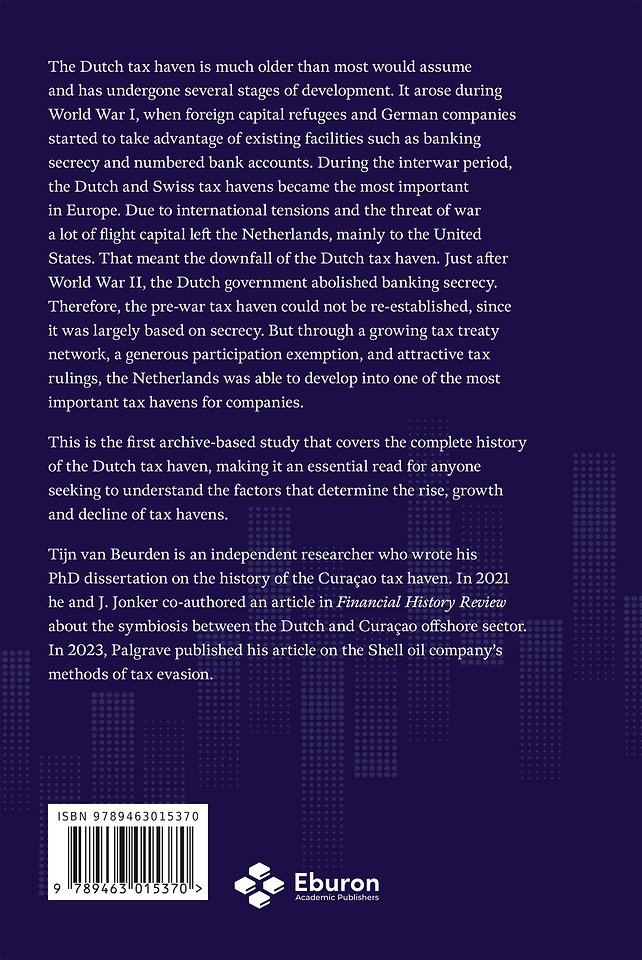History of the Netherlands as a Tax Haven, 1914-1996
Rise, heyday, downfall and revival after the Second World War
Paperback Engels 2025 1e druk 9789463015370Samenvatting
The Dutch tax haven is much older than most would assume and has undergone several stages of development. It arose during World War I, when foreign capital refugees and German companies started to take advantage of existing facilities such as banking secrecy and numbered bank accounts. During the interwar period, the Dutch and Swiss tax havens became the most important in Europe. Due to international tensions and the threat of war a lot of flight capital left the Netherlands, mainly to the United States.
That meant the downfall of the Dutch tax haven. Just after World War II, the Dutch government abolished banking secrecy. Therefore, the pre-war tax haven could not be re-established, since it was largely based on secrecy. But through a growing tax treaty network, a generous participation exemption, and attractive tax rulings, the Netherlands was able to develop into one of the most important tax havens for companies.
This is the first archive-based study that covers the complete history of the Dutch tax haven, making it an essential read for anyone seeking to understand the factors that determine the rise, growth and decline of tax havens.
Trefwoorden
belasting belastingparadijs fiscale geschiedenis geschiedenis nederland bankgeheim offshore belastingverdragen kapitaalvlucht economie curaçao deelnemingsvrijstelling multinationals internationale belastingplanning belastingontwijking financiële sector fiscaal beleid oorlog trustkantoren fiscale rulings financiële geschiedenis doorsluisland diplomatie brievenbusmaatschappijen financiële dienstverlening internationale druk lobbyisme dividendbelasting buitenlands kapitaal politiek
Trefwoorden
Specificaties
Lezersrecensies
Anderen die dit boek kochten, kochten ook
Rubrieken
- advisering
- algemeen management
- coaching en trainen
- communicatie en media
- economie
- financieel management
- inkoop en logistiek
- internet en social media
- it-management / ict
- juridisch
- leiderschap
- marketing
- mens en maatschappij
- non-profit
- ondernemen
- organisatiekunde
- personal finance
- personeelsmanagement
- persoonlijke effectiviteit
- projectmanagement
- psychologie
- reclame en verkoop
- strategisch management
- verandermanagement
- werk en loopbaan









